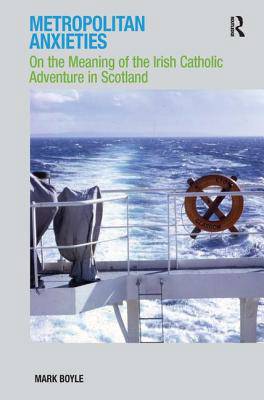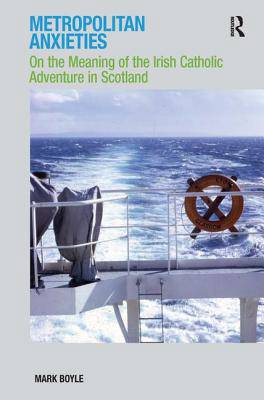
- Retrait gratuit dans votre magasin Club
- 7.000.000 titres dans notre catalogue
- Payer en toute sécurité
- Toujours un magasin près de chez vous
- Retrait gratuit dans votre magasin Club
- 7.000.0000 titres dans notre catalogue
- Payer en toute sécurité
- Toujours un magasin près de chez vous
Metropolitan Anxieties
On the Meaning of the Irish Catholic Adventure in Scotland
Mark Boyle
Livre relié | Anglais
83,95 €
+ 167 points
Format
Description
In a lecture entitled 'Scotland's shame', delivered at the Edinburgh Festival in August 1999, Scotland's leading musical composer James MacMillan sought to expose the continuing pervasiveness of anti-Irish and anti-Catholic sectarianism and bigotry in contemporary Scotland. A decade of heated public debate has followed. The purpose of this book is to harness the complex and rich theory of colonialism which French philosopher, political activist and novelist Jean-Paul Sartre developed and struggled over, to venture a qualified and partial interpretation of the Irish Catholic experience of Scotland.
Spécifications
Parties prenantes
- Auteur(s) :
- Editeur:
Contenu
- Nombre de pages :
- 296
- Langue:
- Anglais
Caractéristiques
- EAN:
- 9780754633792
- Date de parution :
- 28-08-11
- Format:
- Livre relié
- Format numérique:
- Genaaid
- Dimensions :
- 156 mm x 234 mm
- Poids :
- 589 g

Les avis
Nous publions uniquement les avis qui respectent les conditions requises. Consultez nos conditions pour les avis.






